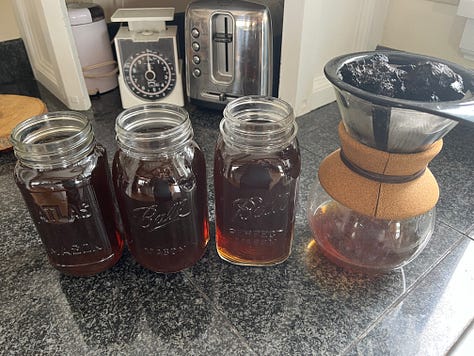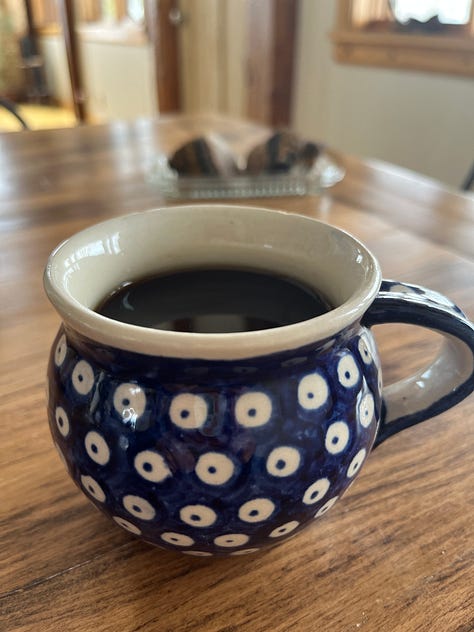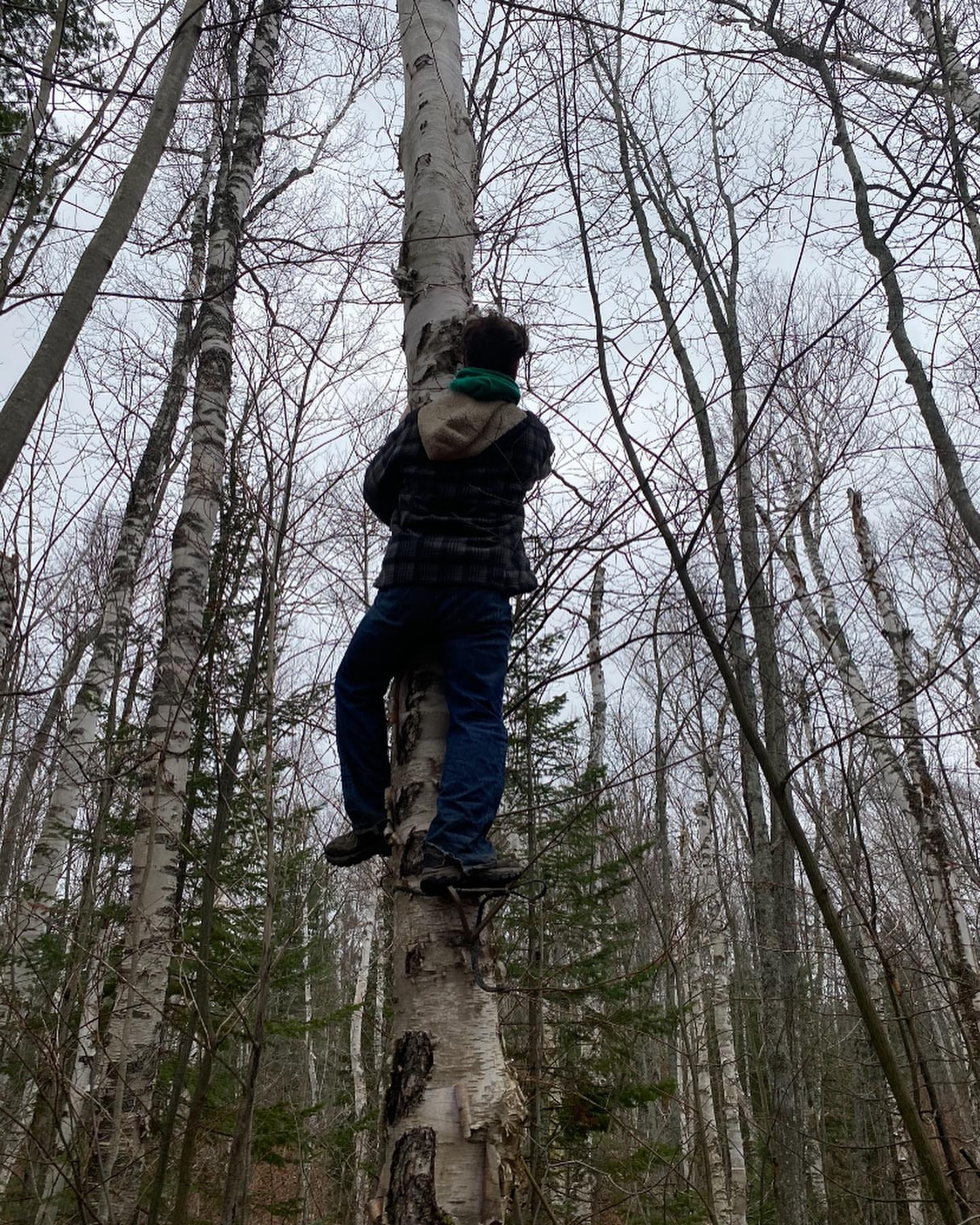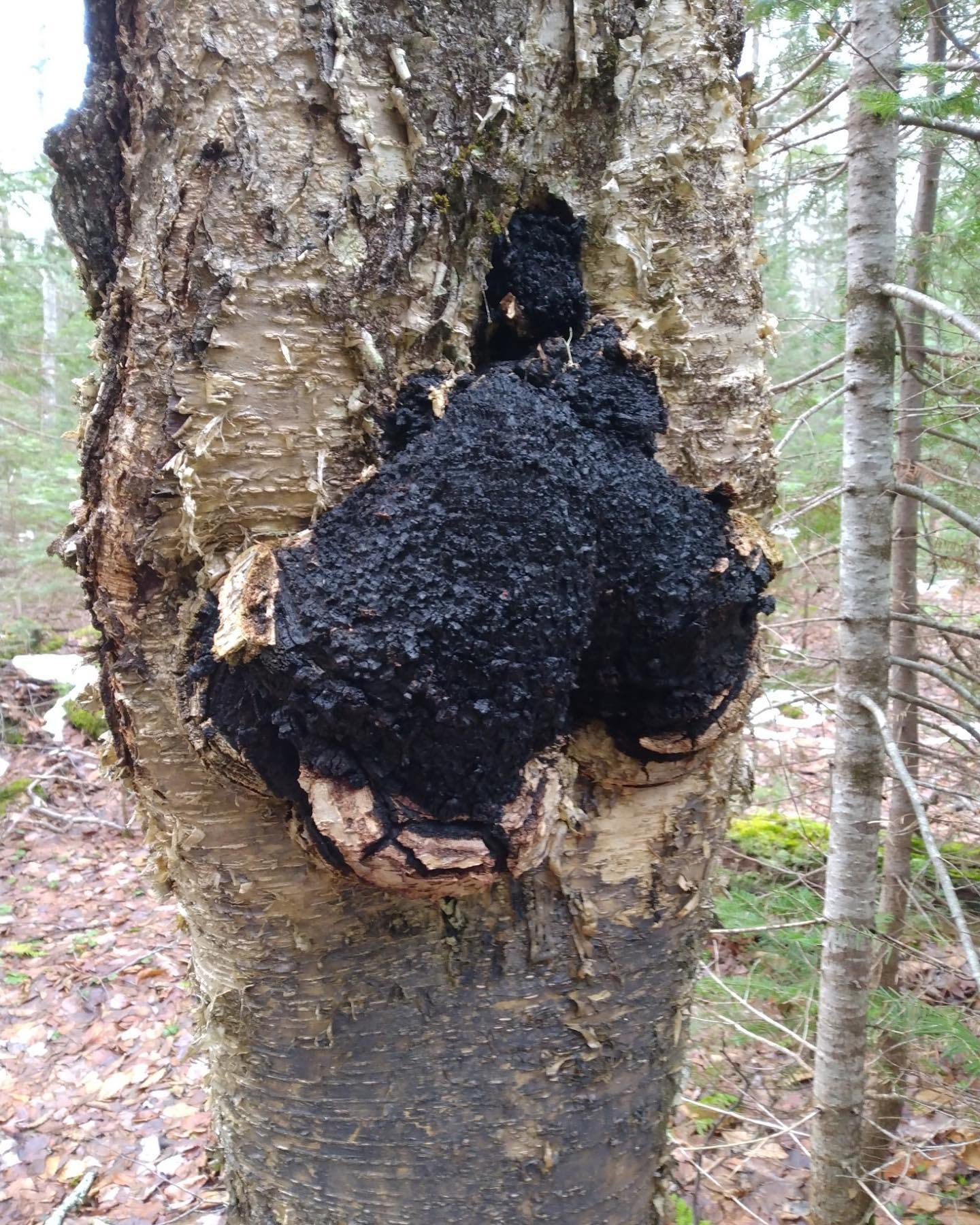Chaga!
The Mushroom of Immortality
Chaga is mainstream these days. You can buy a trendy chagaccino at coffee shops all over Los Angeles, clear evidence that this homely fungus is coming into its own. Popular as a folk medicine in Russia, Siberia, and any northern clime with birch trees and long cold winters, chaga is recognized--Black Gold, King of Medicinal Mushrooms, Diamond of the Forest, Mushroom of Immortality—in Western culture as a superfood.
Chaga, Inonotus obliquus, is a parasitic fungus in the family Hymenochaetaceae. What desperate denizen first hacked off some of that black growth and crushed it into a powder and brewed a tea? Baba Yaga? The plant has been used for millennia to treat all sorts of ailments including Tsar Vladimir Monomakh’s lip cancer in the 12th century.
Three years ago I was at the Traverse City farmers market on a sunny June morning when I spied a gnarly growth on the edge of the Great Lakes Treats table that seemed to be winking at me. I approached and asked cautiously, “Is that chaga?” and the vendor nodded a knowing yes. I purchased some of their packaged dried chaga and gave it a try. I’ve been a steady customer ever since.
I had serious gut issues that spring—stress, Covid, yadda yadda—and eventually diagnosed with lymphocytic colitis which caused me to radically change my diet. I gave up coffee, tea, gluten, sugar, anything good. But I missed a warm brown morning beverage and did some internet searching that led me to chaga as a coffee/tea substitute.
Today I am symptom free of the colitis but I still enjoy my chaga every morning, before my coffee. It is a great beverage on its own with hints of vanilla and birch but has properties that make it extremely beneficial for health. Boosting the immune system, fighting cancer, reducing inflammation, lowering cholesterol, and lowering blood sugar are some of chaga’s superpowers. Chaga is rich in B complex vitamins, vitamin D, potassium, zinc, iron, manganese, magnesium, and calcium. Further research will determine more attributes as clinical trials increase.
But such a powerful food is not for everyone. If you have issues with kidney stones, chaga ‘s high oxalate content can cause or exacerbate kidney stones. If you are diabetic and take medicine to lower your blood sugar, discuss using chaga with a professional before ingesting on a regular basis. And chaga may interact with blood thinners. Again, discuss with your healthcare provider.
Jill and Aaron Grenchik are the owner operators of Great Lakes Treats and are a wealth of knowledge about chaga and other wild mushrooms. They are careful about where they obtain their specimens (on private land) and maintain harvest practices that guarantee sustainability. They are licensed by the Midwest American Mycological Information, in conjunction with the Michigan Department of Agriculture. These folks know what they are doing and are also happy to share their knowledge. Check out their website for classes that they offer about foraging for wild mushrooms. It is risky business and not something that you do on your own. Ever.









